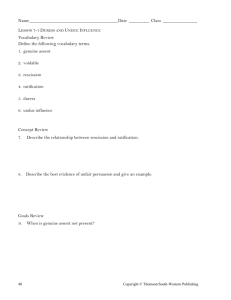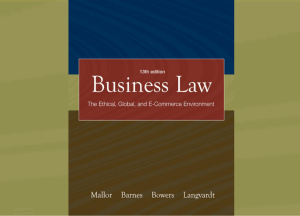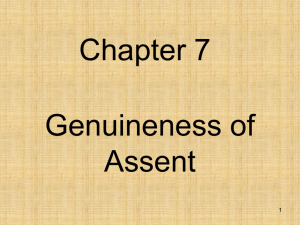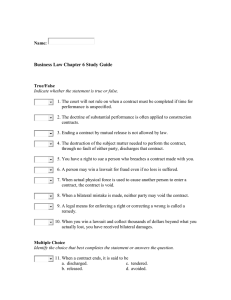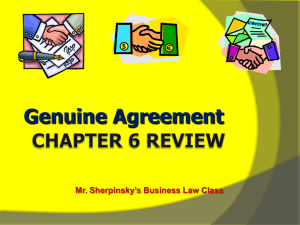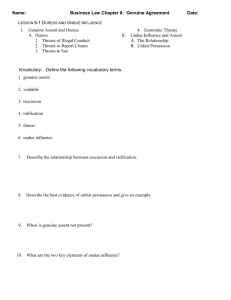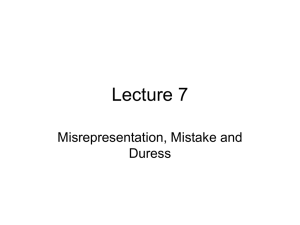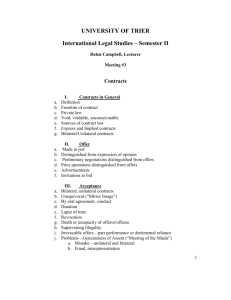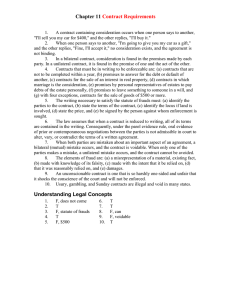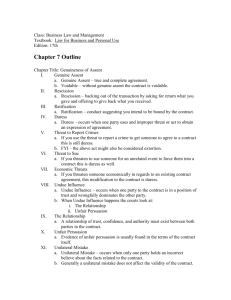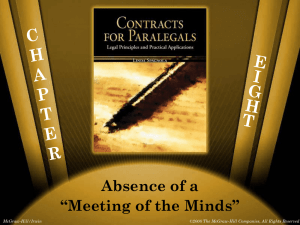Chapter 567 Contracts Law Study Guide-1
advertisement
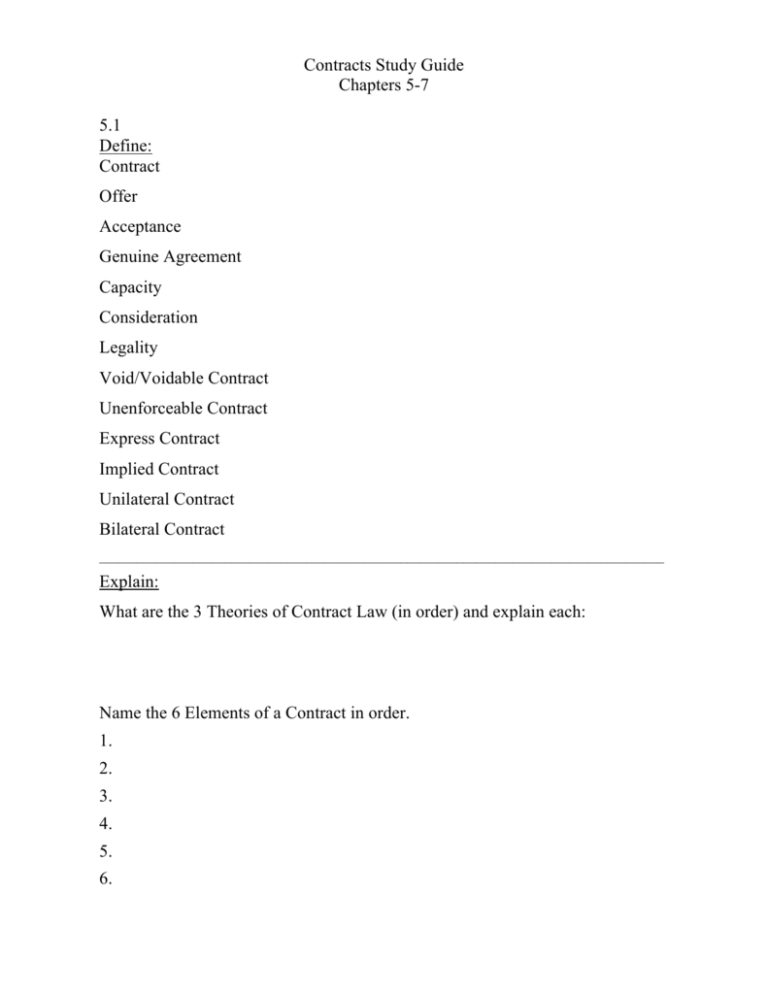
Contracts Study Guide Chapters 5-7 5.1 Define: Contract Offer Acceptance Genuine Agreement Capacity Consideration Legality Void/Voidable Contract Unenforceable Contract Express Contract Implied Contract Unilateral Contract Bilateral Contract __________________________________________________________________________________________ Explain: What are the 3 Theories of Contract Law (in order) and explain each: Name the 6 Elements of a Contract in order. 1. 2. 3. 4. 5. 6. What are the 9 Characteristics of a Contract? V________ V________ U________ E________ I ________ B________ U________ O________ W________ What is the difference between a valid, voidable and unenforceable contract? What is the difference between a unilateral and bilateral contract? How did the Industrial Revolution change the courts attitude toward interpreting contract law? ________________________________________________________________ 5.2 Define: Invitation to Negotiate Mirror Image Rule Counteroffer Revocation Rejection ________________________________________________________________ Explain: How does an invitation to negotiate differ from an offer? What are the 3 requirements of an offer? S________ D________ C________ What are the requirements of an acceptance? What is the difference between an acceptance and a counteroffer? When is an offer terminated? Why is an advertisement in the newspaper considered an invitation to negotiate rather than an offer? What 2 rules govern the revocation of contracts? 1. 2. How can genuine agreement be disrupted or destroyed? ________________________________________________________________ 6.1 Define: Fraud Rescind Material Fact Concealment Misrepresentation ________________________________________________________________ What are the 5 elements of Fraud? 1. 2. 3. 4. 5. What is the difference between fraud and concealment? What is the difference between fraud and innocent misrepresentation? What is the difference between the remedy available for fraud and the remedy available for misrepresentation? ________________________________________________________________ 6.2 Define: Unilateral Mistake Bilateral Mistake Duress Economic Duress Undue Influence ________________________________________________________________ Explain: What is the difference between unilateral and bilateral mistakes? What type of mistake will allow rescission of a contract? What are the requirements of economic duress? What are the requirements of undue influence? What is the main difference between duress and undue influence? What are 2 kinds of bilateral mistakes? Who may avoid a contract that contains a bilateral mistake? Name 5 circumstances that we’ve discussed that may create a defective agreement. ________________________________________________________________ 7.1 Define: Capacity Rebuttable Presumption Majority Minor/Minority Emancipated Abandoned Ratify Necessaries Guardian Aliens ________________________________________________________________ Explain: At what age in the U.S. does someone reach Majority? What age did it used to be? Why does the law shield minors in the making of their contracts? May a minor affirm and disaffirm parts of the same contract? Explain your answer. May a minor avoid a contract with another minor? Why or why not? Are intoxicated persons always able to disaffirm their contracts? Explain your answer. What is an emancipated minor? What are necessaries? What is capacity? When are the contracts of a mentally impaired person considered valid?
